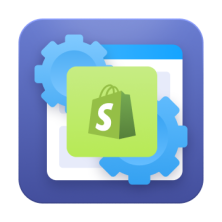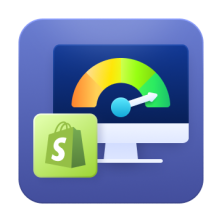Shopify has set a high standard in the e-commerce world, but it's not the only platform available. Whether you’re searching for more flexibility, a different pricing model, or features that better match your business needs, exploring Shopify alternatives can lead you to the perfect solution. In this blog post, we’ll look at eight of the best Shopify alternatives, discussing their features, pricing, pros, and cons.
Platform | Best For | Starting Price | Free Plan Available | Key Strengths | Main Drawbacks |
|---|---|---|---|---|---|
WooCommerce | Customization | Free | Yes | Highly customizable | Requires WordPress setup |
BigCommerce | Large-scale businesses | $29.95/month | No | No transaction fees | Higher learning curve |
Wix eCommerce | Ease of use | $17/month | Yes (with ads) | User-friendly interface | Limited scalability |
Squarespace | Design-centric businesses | $23/month | No | Beautiful templates | Limited advanced features |
Magento | Large enterprises | Custom pricing | Yes (Open Source) | Highly scalable | Requires technical expertise |
Weebly | Simplicity | $6/month | Yes | Affordable pricing | Basic e-commerce features |
Volusion | Data-driven businesses | $35/month | No | Advanced analytics | Limited customization |
PrestaShop | Open-source flexibility | Free | Yes | Extensive customization | Requires technical skills |
1. WooCommerce: The Open-Source Powerhouse

WooCommerce is one of the most popular Shopify alternatives, especially for those already using WordPress. As an open-source e-commerce plugin, WooCommerce integrates seamlessly with WordPress, allowing you to turn any WordPress site into a fully functioning online store.
Key Features
- Flexibility and Customization: WooCommerce offers a wide range of themes and plugins, making it highly customizable. Whether you need specific payment gateways, shipping options, or marketing tools, there's likely an extension available to meet your needs.
- Cost-Effective: While WooCommerce itself is free, you may need to pay for certain premium themes or plugins. However, this often works out cheaper than Shopify's monthly fees, making WooCommerce one of the best free Shopify alternatives.
- Scalability: WooCommerce can handle anything from small shops to large online stores, making it a versatile option for growing businesses.
Pricing
- WooCommerce Plugin: Free
- Hosting and Domain: Varies ($3 to $30/month on average)
- Premium Themes and Plugins: Varies depending on your needs
Pros
- Highly Customizable: Offers extensive customization through themes and plugins.
- Cost-Effective: Basic platform is free; you only pay for what you need.
- Large Community Support: Extensive support from a large community of developers and users.
Cons
- Requires WordPress: You must use WordPress, which may not be ideal for all users.
- Technical Knowledge Needed: Customization often requires a good understanding of WordPress and web development.
2. BigCommerce: The Enterprise-Level Competitor

BigCommerce is often cited as one of Shopify's biggest competitors. It offers a robust platform with a range of features designed to help businesses scale. Unlike Shopify, BigCommerce has no transaction fees and offers a variety of built-in tools that can save on third-party app costs.
Key Features
- No Transaction Fees: One of the standout features of BigCommerce is the absence of transaction fees, making it a cost-effective option for high-volume stores.
- Built-In Features: BigCommerce comes with a host of built-in features such as SEO tools, multi-channel selling options, and advanced analytics, reducing the need for additional apps.
- Scalability: BigCommerce is designed to grow with your business, making it one of the best Shopify alternatives for large and enterprise-level companies.
Pricing
- Standard Plan: $29.95/month
- Plus Plan: $79.95/month
- Pro Plan: $299.95/month
- Enterprise Plan: Custom pricing based on business needs
Pros
- No Transaction Fees: Cost-effective for high-volume stores.
- Extensive Built-In Features: Reduces the need for third-party apps.
- Scalable: Can grow with your business, making it ideal for larger enterprises.
Cons
- Higher Learning Curve: The platform can be complex for beginners.
- Pricing: Costs can be high, especially with the Pro and Enterprise plans.
3. Wix Ecommerce: User-Friendly and Affordable

Wix is known for its easy-to-use website builder, and its ecommerce platform is no exception. Wix e-commerce is one of the most user-friendly Shopify alternatives, making it ideal for beginners or those with limited technical skills.
Key Features
- Ease of Use: Wix offers a drag-and-drop interface, making it simple to create a professional-looking online store without needing to know how to code.
- Affordable Pricing: Wix's pricing is generally lower than Shopify's, making it an attractive option for budget-conscious entrepreneurs. They even offer a free plan, though it comes with some limitations.
- Design Flexibility: With hundreds of templates and the ability to customize every aspect of your site, Wix provides a level of design flexibility that rivals many other Shopify competitors.
Pricing
- Business Basic: $27/month
- Business Unlimited: $32/month
- Business VIP: $59/month
- Free Plan: Available (with Wix branding and ads)
Pros
- User-Friendly: The drag-and-drop interface makes it easy for anyone to build a website.
- Affordable: Lower pricing plans than Shopify, suitable for small businesses.
- Visually Appealing Templates: Offers a wide range of customizable templates.
Cons
- Limited Scalability: May not be suitable for large businesses or rapid scaling.
- Limited Advanced Features: Lacks some of the advanced features that larger platforms offer.
Read More: Wix vs. Shopify
4. Squarespace: Design-Centric E-commerce

Squarespace is often lauded for its beautiful templates and design-focused approach. While it's known more as a website builder, its eCommerce capabilities make it a strong alternative to Shopify, especially for creative professionals and businesses focused on aesthetics.
Key Features
- Stunning Templates: Squarespace offers some of the most visually appealing templates available, making it ideal for businesses in industries where design is paramount, such as fashion or art.
- Integrated Marketing Tools: With built-in SEO, email marketing, and social media integration, Squarespace provides a comprehensive set of tools to help you grow your online presence.
- User-Friendly: Squarespace's interface is intuitive, making it easy to manage your store, even if you're not tech-savvy.
Pricing
- Business Plan: $23/month
- Basic Commerce: $27/month
- Advanced Commerce: $49/month
Pros
- Beautiful Templates: Ideal for businesses that prioritize design and aesthetics.
- Integrated Marketing Tools: Offers a range of tools to promote your online store.
- Easy to Use: User-friendly interface, even for those without technical skills.
Cons
- Limited E-commerce Features: Less powerful compared to platforms like Shopify or BigCommerce.
- Pricing: Can be more expensive given the limited advanced e-commerce features.
5. Magento: The Powerhouse for Large-Scale Businesses

Magento is one of the most powerful e-commerce platforms available, making it one of the best Shopify alternatives for large businesses with complex needs. Owned by Adobe, Magento offers two versions: Magento Open Source and Magento Commerce, the latter being a premium option with advanced features.
Key Features
- High Customizability: Magento is highly customizable, allowing businesses to create a tailored shopping experience. However, this requires a certain level of technical expertise.
- Scalability: Magento is built to handle large-scale operations, making it ideal for enterprise-level businesses with significant traffic and sales volumes.
- Advanced SEO Features: Magento offers advanced SEO tools, helping businesses improve their visibility on search engines and attract more customers.
Pricing
- Magento Open Source: Free
- Magento Commerce: Custom pricing (Starts around $22,000/year)
Pros
- Highly Customizable: Perfect for businesses needing a tailored solution.
- Scalable: Handles large volumes of traffic and sales, ideal for big businesses.
- Advanced Features: Includes powerful tools like multi-store management and detailed analytics.
Cons
- Expensive: Magento Commerce is costly and likely out of reach for small businesses.
- Requires Technical Expertise: Often requires a developer to manage and customize.
6. Weebly: Simplicity and Affordability

Weebly is another user-friendly website builder that includes e-commerce functionality. It's one of the simplest Shopify alternatives, making it a great choice for small businesses and individuals who want to set up an online store quickly and affordably.
Key Features
- Drag-and-Drop Builder: Weebly's drag-and-drop builder makes it easy to create a website without any coding knowledge, similar to Wix.
- Affordable Pricing: Weebly's plans are very affordable, with a free option available, making it one of the best free Shopify alternatives for budget-conscious entrepreneurs.
- App Integration: While Weebly's app store isn't as extensive as Shopify's, it does offer essential tools and integrations to help you run your online store.
Pricing
- Free Plan: Available
- Professional Plan: $14/month
- Performance Plan: $25/month
Pros
- Very User-Friendly: Simple drag-and-drop interface.
- Affordable: One of the cheapest Shopify alternatives, with a free plan available.
- Square Integration: Seamless integration with Square for payment processing.
Cons
- Basic E-commerce Features: Limited compared to more advanced platforms.
- Customization Limitations: Fewer options for customization compared to competitors.
7. Volusion: Data-Driven E-commerce

Volusion is a cloud-based e-commerce platform that emphasizes analytics and data-driven decision-making. It's one of the Shopify biggest competitors for businesses that want to leverage data to optimize their online stores.
Key Features
- In-Depth Analytics: Volusion offers advanced analytics tools that provide insights into customer behavior, sales trends, and more, helping you make informed decisions.
- No Transaction Fees: Like BigCommerce, Volusion doesn't charge transaction fees, which can save you money in the long run.
- Responsive Design: Volusion's themes are fully responsive, ensuring that your store looks great on any device.
Pricing
- Personal Plan: $35/month
- Professional Plan: $79/month
- Business Plan: $299/month
Pros
- Advanced Analytics: Great for businesses that want to leverage data.
- No Transaction Fees: Reduces overall costs for high-volume stores.
- Responsive Design: Ensures a seamless user experience across devices.
Cons
- Limited Customization: Not as flexible as other platforms like WooCommerce.
- Higher Pricing: Costs can add up quickly with higher-tier plans.
8. PrestaShop: The Open-Source Solution

PrestaShop is another open-source e-commerce platform, making it a strong alternative to Shopify for those who want complete control over their online store. It's free to download and use, though you may need to pay for hosting, themes, and certain modules.
Key Features
- Customization: PrestaShop offers extensive customization options, allowing you to tailor your store to your specific needs. However, like Magento, it requires some technical expertise.
- Cost-Effective: As a free platform, PrestaShop is one of the best free Shopify alternatives, though you should budget for additional costs like hosting and premium modules.
- Global Reach: PrestaShop supports multiple languages and currencies, making it ideal for businesses that want to reach a global audience.
Pricing
- PrestaShop Software: Free
- Hosting and Domain: Varies
- Premium Modules and Themes: Varies
Pros
- Highly Customizable: Allows extensive customization to meet specific business needs.
- Free to Use: One of the best free Shopify alternatives.
- Global Capabilities: Supports multiple languages and currencies.
Cons
- Requires Technical Knowledge: Not as user-friendly as some other platforms, requiring some technical expertise.
- Additional Costs: Although the platform is free, additional costs for hosting and premium modules can add up.
How to Choose an Alternative to Shopify
Choosing the right alternative to Shopify depends on several factors unique to your business. Start by identifying your specific needs, such as the level of customization required, your budget, and the scale of your operations. Consider whether you need an easy-to-use platform or if you're comfortable with a more complex solution that offers greater flexibility. Evaluate the pricing structures of each alternative, keeping in mind both the upfront costs and any additional fees, such as transaction fees or costs for third-party apps. Finally, think about your long-term goals - whether you plan to scale rapidly, expand internationally, or focus on a niche market, selecting a platform that can grow with your business is crucial. By carefully weighing these considerations, you can choose the Shopify alternative that best aligns with your business strategy and goals.
Finding the Right Shopify Alternative for Your Business
Choosing the right platform for your online store is crucial to your business's success. While Shopify is a powerful and popular option, it's not the only one available. Depending on your needs, budget, and technical expertise, one of the Shopify competitors we've discussed might be a better fit.
- For customization and control, WooCommerce and PrestaShop offer open-source solutions that give you complete control over your store.
- For ease of use, Wix eCommerce and Weebly provide user-friendly interfaces that make setting up and managing your store a breeze.
- For large-scale businesses, BigCommerce and Magento offer powerful features and scalability that can handle significant traffic and sales volumes.
- For design-focused businesses, Squarespace provides stunning templates and integrated marketing tools.
- For data-driven insights, Volusion offers advanced analytics and no transaction fees.
By considering your specific needs and priorities, you can find the best Shopify alternatives that will help your business thrive online.
Frequently asked questions
Yes, Shopify and Amazon are considered competitors, although they operate differently. Shopify is a platform that allows businesses to create and manage their own online stores, whereas Amazon is a marketplace where businesses can sell their products alongside others.
Yes, several free alternatives to Shopify exist. WooCommerce, PrestaShop, and Magento Open Source are all free platforms, although they may require additional costs for hosting, themes, and plugins.
Shopify is a good alternative to Magento for small to medium-sized businesses looking for an easy-to-use platform. Magento, on the other hand, is better suited for large enterprises with more complex needs and the resources to manage a highly customizable, scalable platform.
Shopify stands out for its ease of use, extensive app marketplace, and robust customer support. However, it can be more expensive due to transaction fees and the cost of third-party apps. Competitors like WooCommerce offer more customization, while BigCommerce provides more built-in features without transaction fees.
Whether WooCommerce is better than Shopify depends on your needs. WooCommerce is better for those who want complete control over their store and are comfortable with WordPress. Shopify, however, is easier to set up and manage, making it ideal for those who prefer a more straightforward, all-in-one solution.


















